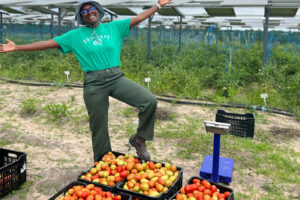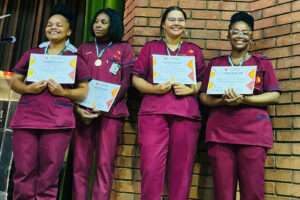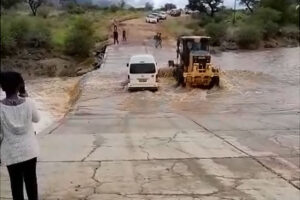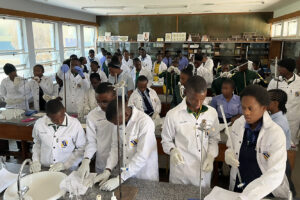Animal nutrition remains one of the most pressing challenges for farmers across Namibia, with high feed costs and limited local resources threatening livestock productivity. To address this, the University of Namibia (UNAM) hosted an essential three-day training session at its Neudamm Campus from 5-7 February 2025.
The training brought together 40 farmers engaged in livestock, poultry, piggery, rabbitry, and fish farming. Led by Prof. Ndakalimwe Naftal Gabriel (Department of Fisheries and Ocean Sciences, Sam Nujoma Campus), alongside Prof. John Mupangwa and Dr. Maria N.T. Shipandeni (Animal Production, Agribusiness & Economics, Neudamm Campus). The initiative, supported by the United States Embassy and conducted in collaboration with Prof. Michael Habte-Tsion from the University of Maine’s Aquaculture Institute, aimed to equip farmers with hands-on skills in feed formulation and animal nutrition.
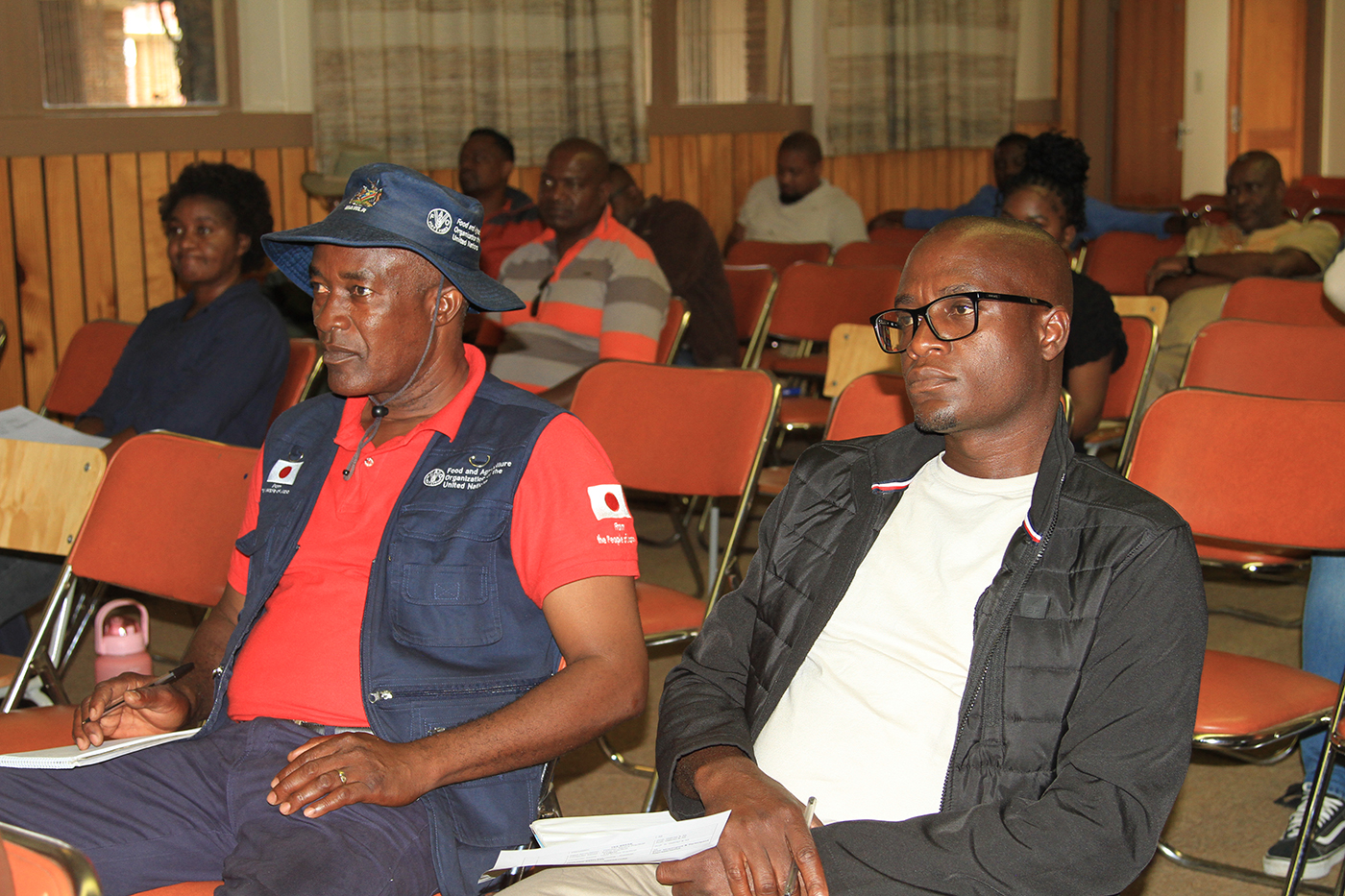
A practical approach to sustainable farming
Farmers didn’t just sit through lectures – they actively participated in formulating practical, cost-effective, and nutritionally balanced feed. The team developed a comprehensive, hands-on curriculum to equip farmers with the skills needed to formulate practical, cost-effective, and nutritionally balanced feed on their farms.
The training also served as a knowledge exchange platform, where academics gained insights into region-specific feed resources that farmers could use to enhance animal nutrition.
Namibia’s unpredictable rainfall patterns make it difficult for farmers to provide adequate nutrition for their animals. Many rely on expensive commercial feed or struggle with unbalanced homemade alternatives. According to Dr. Gabriel, this training empowers them with scientific knowledge and practical skills to become self-sufficient in feed production.
“We’ve developed a social network where farmers can share their experiences and receive ongoing support.” “We’re also working with regional trainers from the Ministry of Agriculture, Water and Land Reform to ensure that this knowledge is applied effectively in different parts of the country,” said Dr. Gabriel.
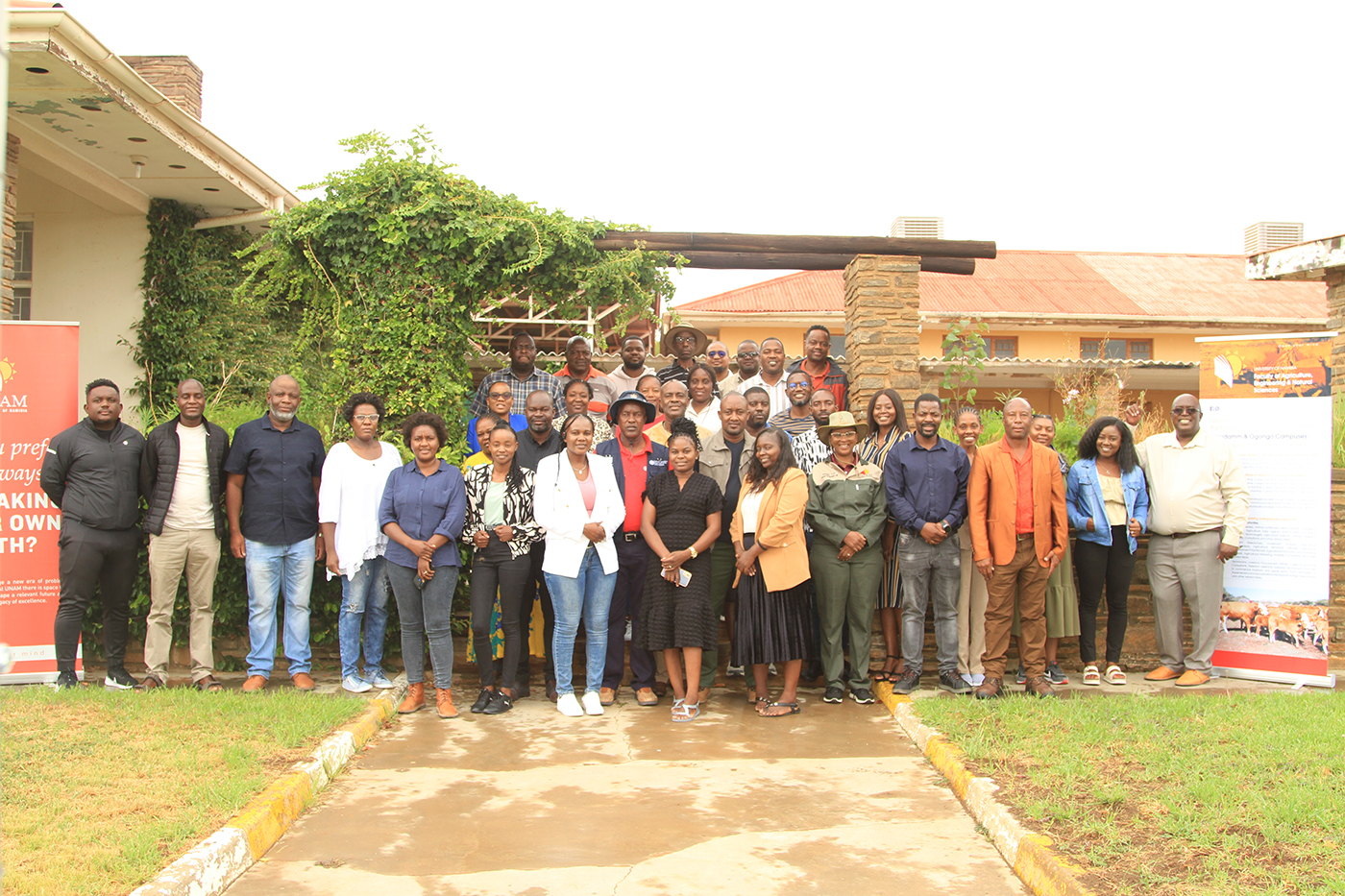
Expanding the training to diverse regions
The overwhelming positive feedback from farmers has encouraged UNAM to expand the program. Dr. Gabriel revealed that a newly approved short course will now be offered annually for a fee, with plans to take the training directly to remote regions if additional funding is secured.
This initiative not only aligns with the University’s strategic goal of community engagement but also lays the foundation for a more resilient and self-sufficient agricultural sector in Namibia.
The facilitators (Prof. Gabriel, Prof. Mupangwa, and Dr. Shipandeni) highlighted that this initiative reinforces the university’s commitment to addressing societal needs through impactful research and knowledge transfer.


